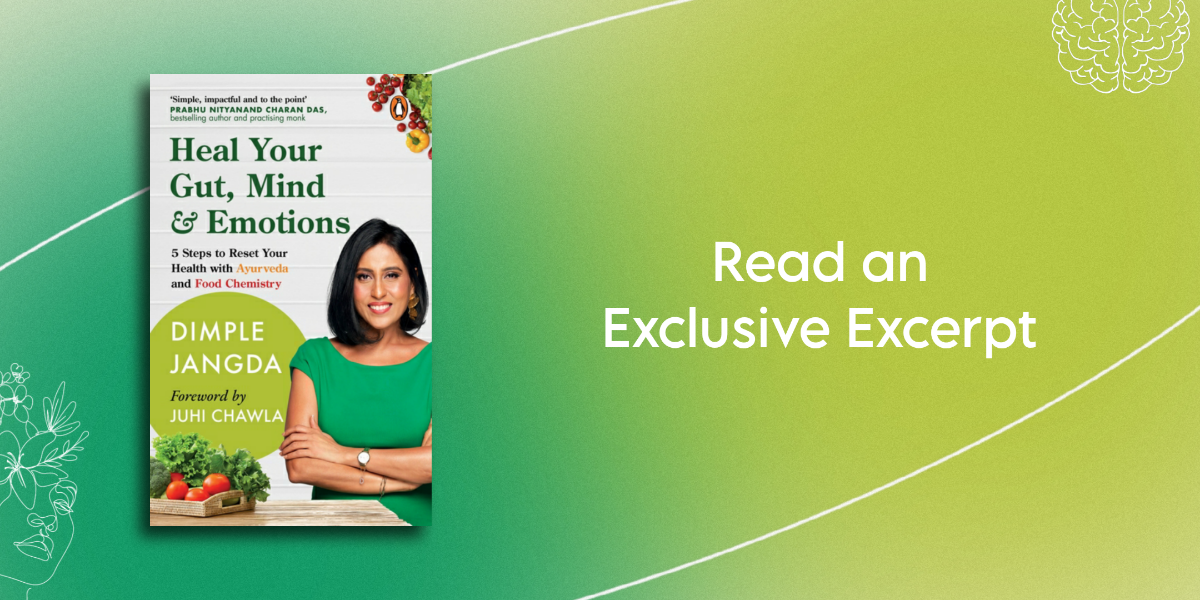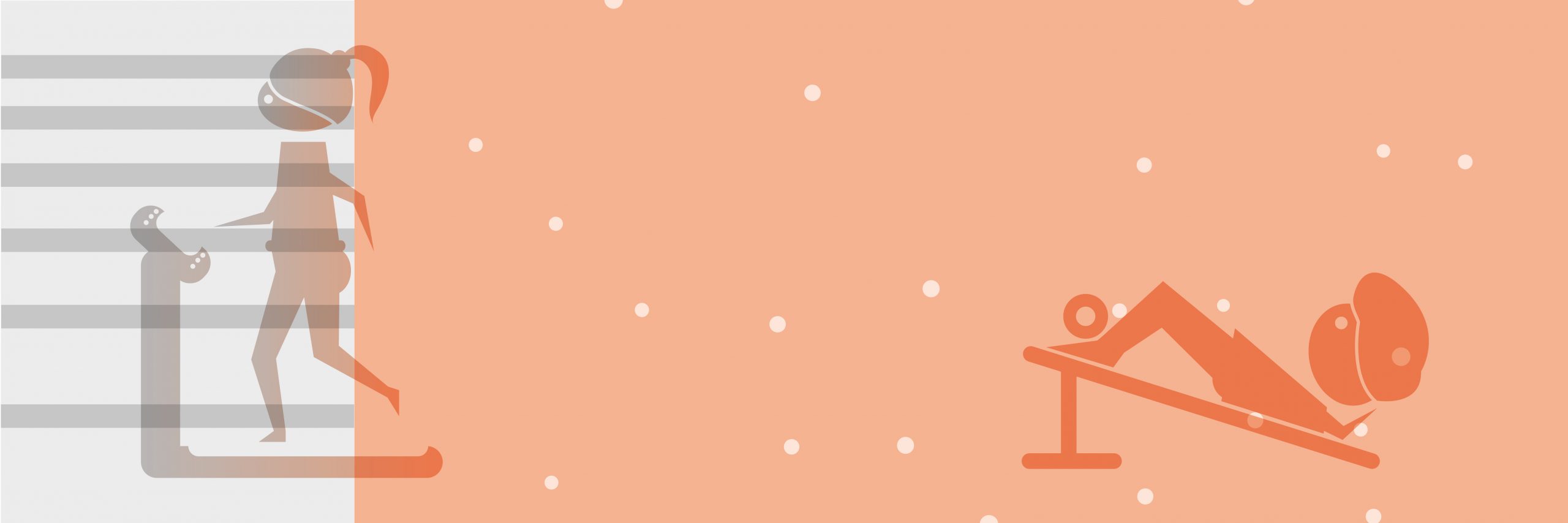Prepare to uncover the extraordinary abilities hidden within your gut in this exclusive sneak peek from ‘Heal Your Gut, Mind, and Emotions’ by Dimple Jangda. Learn how your gut holds the key to your intuition, emotions, and overall health, all explained in a way that’s easy to understand. Discover the incredible relationship between your gut and mind, and pick up practical tips to boost your well-being.
Read this exclusive excerpt to know more!

***
I have a heart-feeling or a brain-feeling, said no one ever. It is a gut-feeling, gut intuition, or gut instinct that we all crave to experience and follow. Have you ever had a gut feeling about something, and when you followed what it was telling you, it was the best decision you made? But how is it possible for us to feel through the gut? Shouldn’t our feelings come from a purer place, like the heart centre, or from a more superior organ, like the brain?
We always follow our gut, because deep down even our body knows that, Intuition comes from the gut!
Many scientists call the gut ‘a second brain’. Some scientists have gone one step forward to say that the gut could be the biggest brain in the body, because there are more neurons lining the gut walls than there are neurons in the brain. Neurons are your information messengers that transmit information between different areas within the brain, and also between the brain and the nervous system connected to all other organs.
The gut is directly connected to the brain.
The gut has a direct hotline access to the brain. It sends messages to the brain every micromillion second. The vagus nerve, or the vagal nerve, plays a critical role here, controlling the gut–brain axis, carrying messages from the digestive system and organs to the brain and vice versa. It originates from the brainstem, passes through the neck and the thorax, down to the abdomen, and controls bodily functions such as digestion, heart rate, and the immune system. In fact, scientists have discovered that treating the vagus nerve allows us to treat even psychiatric disorders like depression, PTSD, and gastrointestinal disorders like indigestion and irritable bowel syndrome.
Sing, hum and chant your way to good gut health! The vagus nerve is the most sensitive and also the weakest nerve. It governs the respiratory system, digestive and neuron health, and sends messages to the gut on when to churn the food, what kind of enzyme production to keep, how much stomach acid levels to maintain, when to contract which muscle in order to push the food into the intestines. When these signals are strong or at a high vagal tone, it signifies healthy digestion and your ability to adapt to stress. But when these signals are weak, it signifies a low vagal tone and poor digestive health.
How can we strengthen the vagal nerve at home? The vagus nerve is also directly connected to your vocal cord and the muscles at the back of your throat. You can sing, hum, chant, gargle with a mixture of warm water, turmeric and salt, and do the Brahmi pranayama to strengthen the vagus nerve. You see, the morning prayer and songs our mothers made us sing were not just to please God, but to improve our gut health too. Chanting not only strengthens the vagal nerve and digestion, it also improves mental health by replacing any negative sounds in our brain with positive sounds. It improves focus, mental clarity, concentration and coordination.
The gut and brain have a 1:1 relationship.
It is almost like a marriage between two equals and, for a healthy relationship, both must have equal opportunities to express themselves. While you are busy relishing a piece of dessert, your brain sends messages to the gut on what kind of food is about to arrive, and what kind of digestive juices to prepare for the new guest. Meanwhile, your gut continuously sends feedback to the brain on how its feeling, when it is full, when to stop eating. However, when we sit with poor posture, the gut–brain axis gets impacted, causing delayed signals from the gut to the brain, leading to overeating. This is why, in many Asian cultures, elders emphasize the importance of sitting on the floor to eat. When you sit cross legged, it corrects the posture of your spine, allows your gut and brain to smoothly communicate, which prevents you from overeating.
Emotions are experienced in the gut
When you feel anxious, scared, excited, happy, nervous, where do you feel it? You first feel it in the gut. You experience butterflies fluttering in the stomach, and if you entered a place that holds a negative vibe, you would also have this gut-wrenching feeling that something is not right. And your gut is never wrong. It is like a compass installed inside of you to navigate smoothly through this world. Listen to it. Memories are also stored in the gut. When we eat a delicacy that is similar to our grandmother’s recipe, nostalgia hits.
Suddenly our mind gets flooded with all our childhood memories! In fact, advertisers will use that emotion to sell you packaged food products. That is because emotions are experienced through touch, taste, sound, and smell; and the sum of those emotions are stored in the form of memories. Your gut responds to those memories by reminding you exactly how you felt before. The neurons in your brain and your gut make memories by firing together, which allows you to recall multiple memories at the same time. So, emotions and memories are also stored in the gut, and you have an added reason to protect it.
Over 75 per cent of serotonin is released in the gut
Serotonin is the ‘feel-good hormone’ which plays a key role in fighting off anxiety and depression. When the gut is healthy and happy, it sends positive signals to the brain. But when the gut is unhealthy, it sends distress signals to the brain. When we eat a simple home-cooked meal that is made with fresh ingredients, lovingly prepared by our grandparent, parent, partner or even by us, we naturally feel satiated and happy due to the serotonin released in the gut. But when we eat reheated, packaged foods that have preservatives and a short shelf life, the feeling isn’t the same. The gut responds to the quality of the ingredients, the cooking methods and releases serotonin accordingly.
The way to everybody’s heart is through the gut!
***
Get your copy of Heal Your Gut, Mind & Emotions by Dimple Jangda wherever books are sold.














